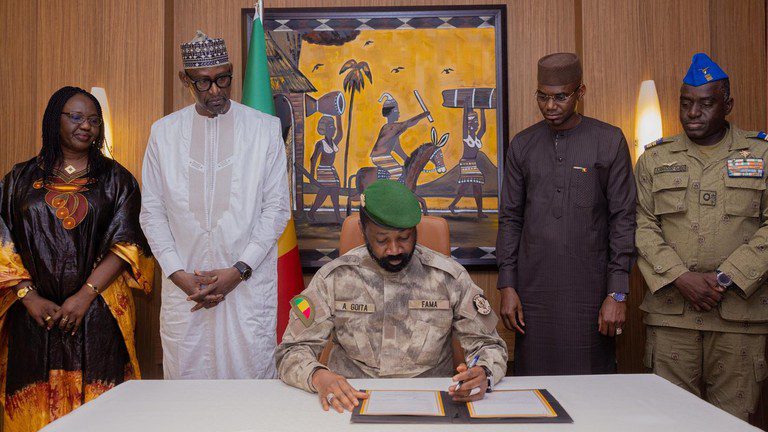Africa
Mali has decided to end its agreements with France

Mali and Niger’s military regimes have both broken contracts with France that permitted them to work together with the former colonial power on tax issues. The decision was made public by the two West African nations on Tuesday through a joint statement.
Mali’s foreign ministry said in a statement published on X (formerly Twitter) that the country is rescinding a 1972 agreement with Paris that set up guidelines for mutual aid in tax situations and prevented double taxation. The objectives of the cancelled Niger-France accord were comparable.
The two countries claimed that France was breaking international cooperation norms and that its “persistent hostile attitude against our states… added to the unbalanced nature of these conventions, causing a considerable shortfall for Mali and Niger.”
The military leaders of the West African countries have been cutting their connections with France, a crucial ally in a number of areas, including security, for some time now. This move is the most recent in a string of such acts.
After French forces left their respective nations in September, Mali, Niger, and Burkina Faso signed a charter to establish the Alliance of Sahel States (AES). The purpose of the agreement is to enable the three countries to jointly combat threats to their internal and foreign security. The states were once a part of the G5 Sahel pact, which was supported by Paris and included Chad and Mauritania. However, the agreement failed as a result of several military coups in the region.
In an effort to “maintain the superior interests of the Malian and Nigerien peoples,” Bamako and Niamey declared on Tuesday that they would be terminating their tax collaboration with Paris within the next three months.
The military authorities said in the statement announcing the decision that the treaties cannot be carried out because of the French government’s meddling in the internal affairs of both nations.
The recent defeats for France in its old colonies in West Africa came after the EU imposed harsh sanctions in response to the toppling of Niger’s President Mohamed Bazoum in July. In an effort to reinstate democratic governance in Niger, the West African regional grouping (ECOWAS) has received help from Paris.
